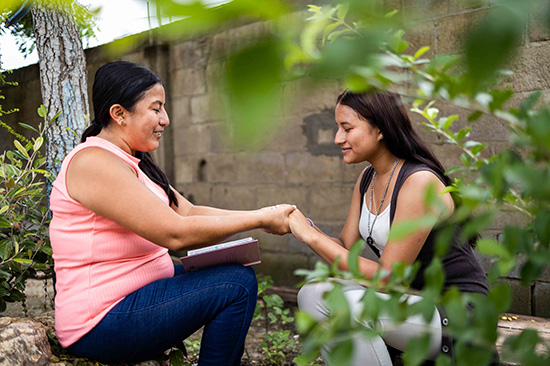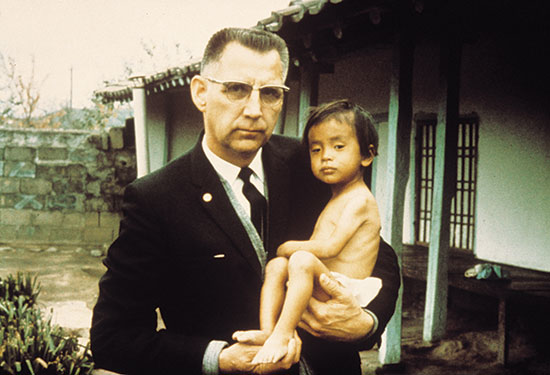Find answers to your questions such as “What is Compassion?” and more by checking out these other BibleProject videos and resources.

What Does it Mean to Have Compassion?
To have compassion means to empathize with someone who is suffering and to feel compelled to reduce their suffering.
Compassion gets involved. While others keep their distance from those who are suffering, compassion prompts us to act on their behalf.
Even though the priest and the Levite kept their distance from the man in need of help, the Good Samaritan stopped to help.
Author Frederick Buechner describes what it means to have compassion in this way:
"Compassion is sometimes the fatal capacity for feeling what it is like to live inside somebody else’s skin. It is the knowledge that there can never really be any peace and joy for me until there is peace and joy finally for you too."
Having Compassion for Others Leads to Mercy
As you learn more about compassion, you’ll likely also hear the word mercy. Compassion and mercy go hand in hand.
Mercy is the fruit of compassion or the compassionate treatment of those in distress. It’s the gift given to the suffering by those living out their compassion.
In the New Testament, Jesus is often moved to mercy through compassion.
"Two blind men were sitting by the roadside, and when they heard that Jesus was going by, they shouted, 'Lord, Son of David, have mercy on us!' . . . Jesus stopped and called them. 'What do you want me to do for you?' he asked. 'Lord,' they answered, 'we want our sight.' Jesus had compassion on them and touched their eyes. Immediately they received their sight and followed him." — Matthew 20:30-34, NIV
Jesus' compassion prompts him to act and he mercifully loves, heals and rescues.
Jesus' very presence in the world is the ultimate act of compassion. We did not deserve his sacrifice on the cross, but because of God's great love, we received mercy. We’re now called to show compassion and mercy for others.
"Be kind and compassionate to one another, forgiving each other, just as in Christ God forgave you." — Ephesians 4:32, NIV

Examples of How You Can Show Compassion
There are endless ways to show compassion for others. For example, having compassion may mean seeing someone grieving a loss and moving to share a hug or encouraging word.
It may mean seeing someone who’s hurt and stopping to lend a hand.
Or it can mean seeing a hungry child and providing the critical food and care they need to thrive.
How We Act Compassionately for Children in Poverty
We believe that every child should be known, loved and protected. But millions of children across the world live in poverty, suffering from a lack of basic resources, opportunities and hope that things will ever change.
That’s why we champion child sponsorship.
Every day, millions of these children living in poverty around the world experience compassion as they participate in our Child Sponsorship Program.
Thousands of local churches in low- and middle-income countries specifically and uniquely care for children in their communities through our holistic child development model.
Each child helped by our Frontline Church Partners receives whole-life care that’s tailored to the child's age, gender, health, culture and family situation.
Whole-life care means we begin, in some cases, with prenatal care and go all the way through young adulthood. We take a long-term, consistent approach to child development, providing opportunities that encourage healthy spiritual, physical, social and economic well-being. As a result, each child can fully mature in every facet of life.
The benefits of our Child Sponsorship Program include:
- The opportunity to hear the gospel of Jesus.
- Better health.
- Better nutrition.
- Safety and protection.
- Socio-emotional development.
- Educational and vocational support.

The Compassion Story
More than 70 years ago, our founder, Rev. Everett Swanson, flew from Chicago to South Korea to minister to American troops fighting in the Korean War.
He was increasingly troubled by the war orphans he saw freezing on the streets, abandoned by society.
Fueled by compassion and unable to turn his back on the suffering children he saw, Rev. Swanson took action by creating Compassion’s sponsorship program.
Today, you can experience the meaning of compassion by sponsoring a child.